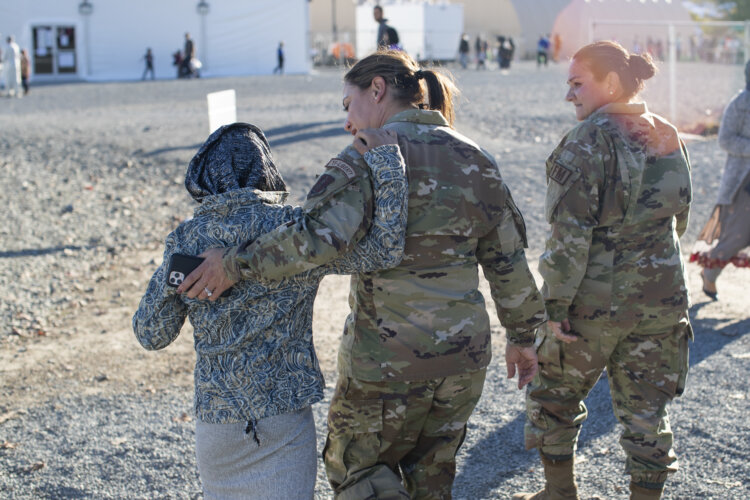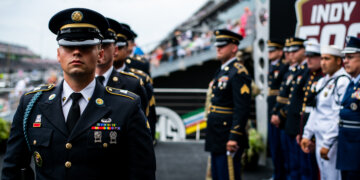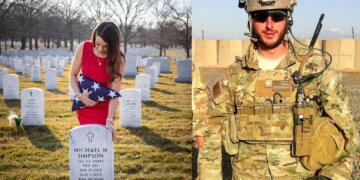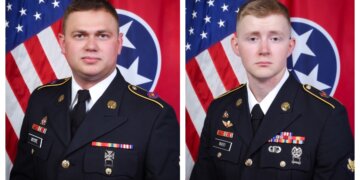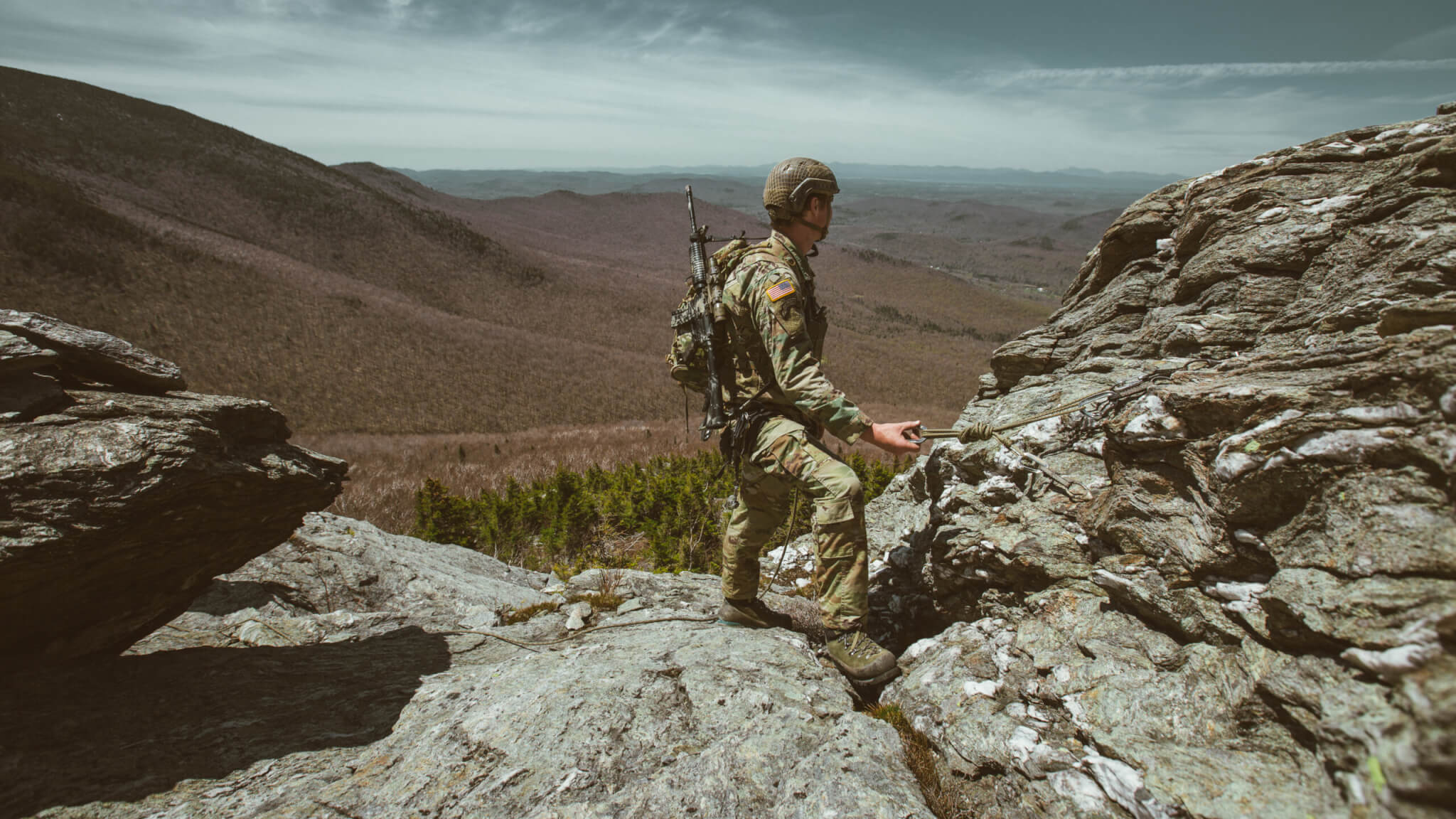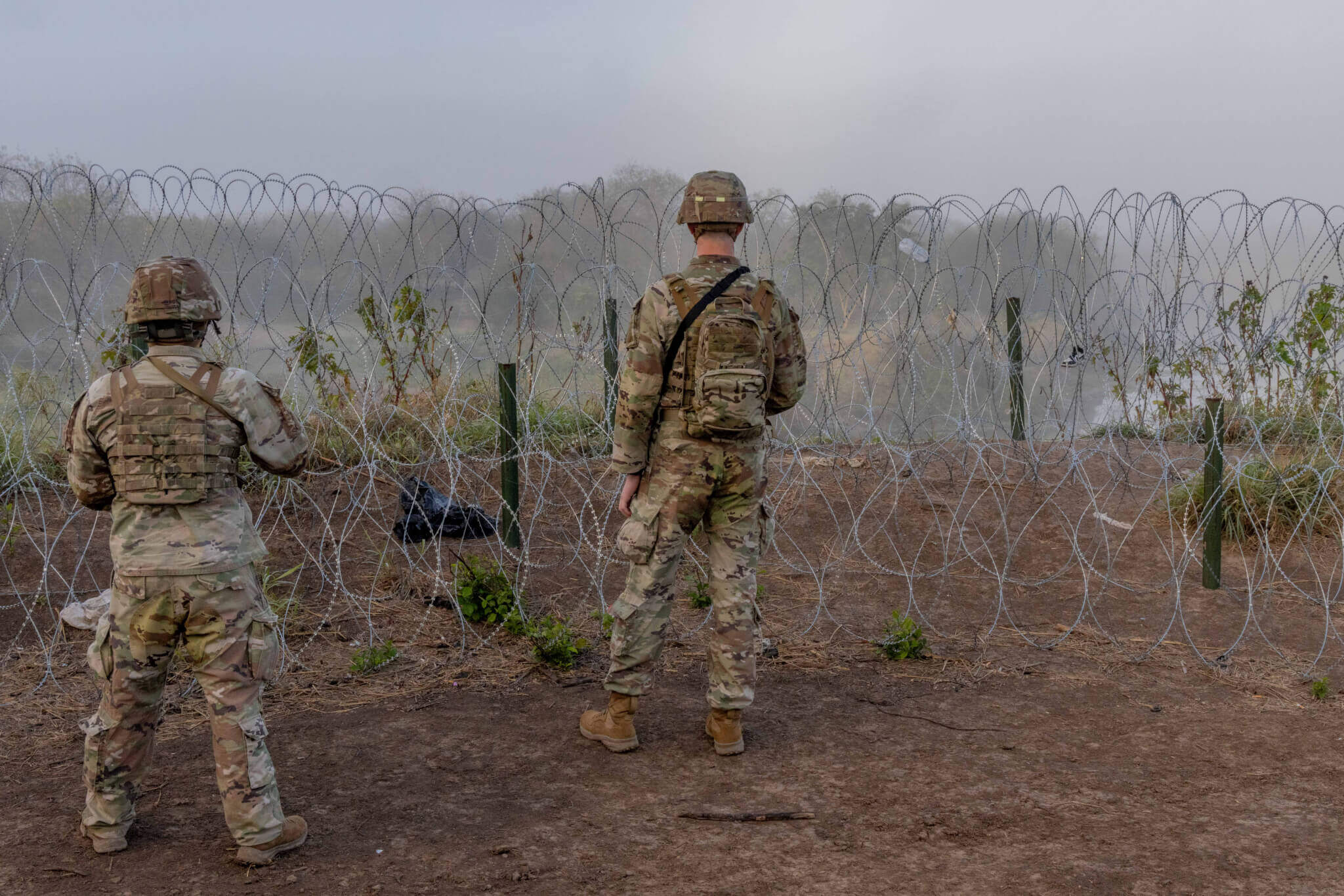Col. Bernadette Maldonado was spent. In the wake of the U.S. military’s abrupt departure from Afghanistan in late 2021, the senior New Jersey Air National Guard officer was pulled into Operation Allies Welcome, a Homeland Security effort to resettle tens of thousands of Afghan refugees on American soil.
“We didn’t have the manning right, we didn’t have the schedule right,” Maldonado said, reflecting on the overwhelming logistics and tight timeframe of her mission. “I remember just being exhausted.”
Overcome with fatigue, Maldonado scaled a set of stairs during one of her morning surveys of refugee living conditions. To her surprise, a little Afghan girl jumped from the top of the stairs, embracing Maldonado, and thanking her for bringing her family to safety. Her contagious joy breathed life into the colonel’s spirit.
“I almost started balling,” Maldonado said. “I was like, ‘OK, this is why we’re doing this.’”
Maldonado has been some places. With more than three decades of service, her military passport includes stops in the United Arab Emirates, Saudi Arabia, Europe and war-torn Afghanistan. But her most immersive international experience, she said, occurred on an Army parade field in New Jersey.
“Even though I was going home at night … I remember being so submerged in the mission like I never have before in my career,” Maldonado said about her four-month assignment as “governor” of the Allies Welcome site at Joint Base McGuire-Dix-Lakehurst, New Jersey. “I think we thought we knew their culture … but you really don’t until you’re submerged into it like that. It changed my perspective.”
Fort Dix served as one of several Allies Welcome DOD sites. Military personnel from all branches and components provided transportation, lodging, medical care and legal support to those making the U.S. their new home. In short order, the operation resettled more than 76,000 Afghan nationals across the nation.
“People and their families are checked in, offered a COVID vaccine, fed, provided medical care, counseled, and sheltered before their onward movement,” Homeland Security Sec. Alejandro Mayorkas told reporters on Sep. 3, 2021. “Every single day our military personnel perform heroic work in the service of so many.”
On Fort Dix, what began with a few thousand refugees in two hard buildings quickly grew into a makeshift city of about 15,000 refugees populating mammoth tents across the post’s parade field.
“These tents were like those huge Oktoberfest tents you see in Germany,” said Maldonado.
Lined with bunk beds, they were the same style of shelters used to house U.S. troops preparing for combat deployments during the height of the wars in Iraq and Afghanistan.
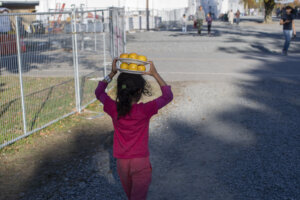
“They slept like a 1,000 people … (but) we quickly learned the Afghan culture is very family oriented,” Maldonado said. “You can’t just put strangers together.”
The Afghans began erecting dividers and hanging sheets to divide their spaces into family units. As a result, the tents designed for 1,000 were lucky to house half that. And many refugees, Maldonado said, were unaccompanied, their hasty exodus driving a heart-wrenching wedge between the family members who escaped and those who remained to face Taliban rule.
“I couldn’t imagine leaving everything you have, your family, all that, and just getting on a plane and having nothing,” Maldonado said. “Every time I walked anywhere, they were like, ‘When am I going to get settled? Where am I going next? How long is this going to take?’ A lot of the time we just didn’t have answers.”
Aided by cultural advisors with deep roots in Afghan culture, Maldonado and her Task Force Liberty team quickly turned to inserting a sense of community into the settlement.
Rather than resort to military terms that smacked of the war the refugees left behind – like “commander” or “base” – they used words such as “governor,” “mayor” and “village.”
They set up schools, with Afghans serving as teachers. An open space became a soccer field to occupy waves of restless children. And a colossal tent served as a “base exchange,” a free market filled with donated goods, a godsend for those who with little more than a suitcase of personal belongings.
RELATED: Iowa Air National Guardsmen assist with ‘historical moment’ in Operation Allies Welcome
“We built a community to help a community,” Maldonado said. “We had every single (military) career field doing just whatever needed to be done. I think we just lived off our motto of ‘Better every day.’”
On a near daily basis, imams and other Afghan leaders would join Maldonado and members of her team, sharing coffee or tea as they talked over the needs and conditions of the villages. On a more fundamental level, they just talked life.
“It was almost like therapy,” Maldonado said.
As life changing as Allies Welcome was for the Afghan nationals, it was also transformative for Maldonado and the other service members. Though on military orders and in uniform, the mission, she said, was humanitarian at its core.
“We ended up having about 2,500 military personnel from active duty to Guard and reserve, (from) as far away as Alaska to help with this mission,” Maldonado said. “It was an absolute joint effort, what we call in the Air Force a total force effort … just to see them jump in and just be so emotionally involved. It was actually a tough deployment to leave.”
Read comments


